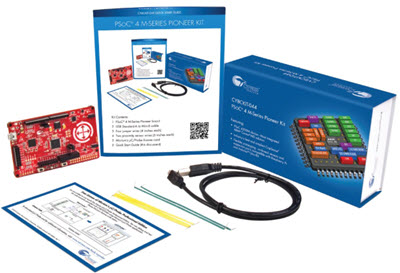|
For novel ideas about building embedded systems (both hardware and firmware), join the 35,000 engineers who subscribe to The Embedded Muse, a free biweekly newsletter. The Muse has no hype and no vendor PR. Click here to subscribe.
|
Math Is Needed
Summary: A math professor scoffs at the teaching of math.
G.V. Ramanathan, professor emeritus of mathematics, statistics and computer science at the University of Illinois at Chicago, wrote last month (http://www.washingtonpost.com/wp-dyn/content/article/2010/10/22/AR2010102205451.html?hpid=opinionsbox1) that math just isn't important, and we should stop teaching, well, he doesn't really say what. But my reading of the piece suggests he mocks the teaching of any math above basic arithmetic.
He disputes a new-new math that tries to make the subject more accessible, and at one point writes: "There are even calculus textbooks showing how to calculate -- I am not making this up and in fact I taught from such a book -- the rate at which the fluid level in a martini glass will go down." Well, that's hardly new; after leaving the Navy when WWII ended my dad went to MIT to study mechanical engineering. As a kid he told me about how his professor gave them nearly the identical problem. I remember thinking "geez, calculus sounds like fun!" It is, and I eventually went on to study far more than was required for an EE degree.
Another juicy quote: "Unlike literature, history, politics and music, math has little relevance to everyday life." How often do you get into a water cooler discussion about dialectical materialism or John Donne's 17th Meditation? These are subjects one studies to be a rounded person. As is math. Donne's piece is beautiful. As is calculating the volume of a sphere using a triple integral. Do I use abstract algebra in my life? Never. Am I glad I took the class? You betcha.
How often do we EEs use calculus? In my career only a handful of times. But when my son had to learn it in high school he warned me he'd need help. I helped him learn both the math and the stunning beauty of how one can solve a problem in a number of ways and always get the same answer. Now he's a physicist. So, yes, calculus is important in everyday life, if there's value to helping one's kids learn and succeed.
Math - like literature, history, politics and music - shapes how we think. These subjects alter the way we perceive and understand the world. You can't grok Serbia without some grounding in the history of the Balkans. Similarly, much of the public is deluded about a range of subjects due to their incompetence in statistics. Sure, people get by without understanding these subjects, but I think their lives are somewhat diminished as a result. As is mine for a persistent inability to like opera.
"As for the rest, there is no obligation to love math any more than grammar, composition, curfew or washing up after dinner." The statement is true; the inference false. There is no obligation to love math, grammar or even your spouse. But such love improves one's life. Even if you hate (for instance) grammar, abandoning it brands you uneducated and unemployable in many jobs.
It's sad that a so-called educator demeans education. The US needs a highly-educated work force now more than ever, and STEM needs to be a core component. More worrisome is Professor Ramanathan's indifference to the joy and importance of learning in general.
Published November 21, 2010


